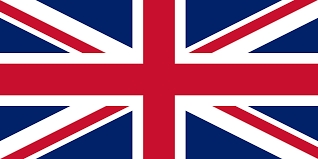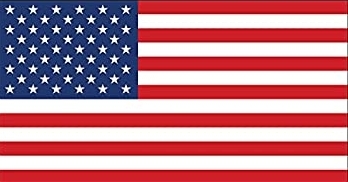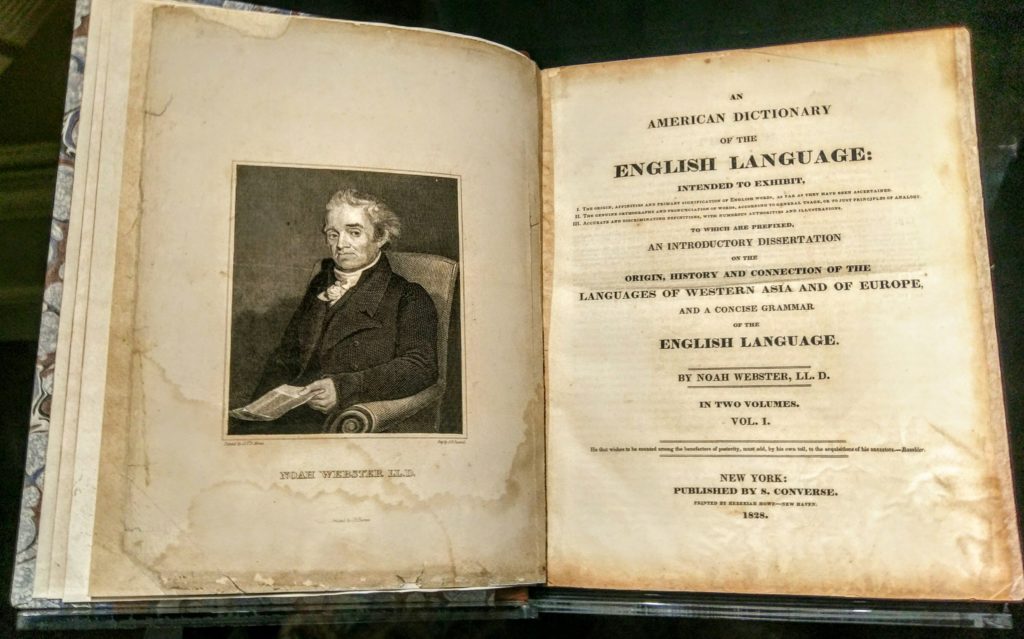24/09/2020


There are many notable differences between British and American English.
Vocabulary
The most significant difference is vocabulary, according to Voice of America.
Americans go on vacation, wear pants and go to college; Brits go on holidays, wear
trousers and go to university, or uni.
Americans play soccer, live in apartments and drive trucks; Brits play football, live in
flats and drive lorries.
You get the drift!
However, the differences don’t stop there!

Title page of the 1828 first edition of the American Dictionary of the English Language featuring an engraving of Webster. Photo credit: By Cullen328 - Own work, CC BY-SA 3.0, https://commons.wikimedia.org/w/index.php?curid=51312662
Spelling
There are also many spelling differences, as pointed out by the British Council. Although English came to the US, a former British colony, from the UK, American lexicographer Noah Webster changed how words were spelled in American English to demonstrate American cultural independence.
|
British English |
American English |
|
-oe-/-ae- (e.g. anaemia, diarrhoea, encyclopaedia) |
-e- (e.g. anemia, diarrhea, encyclopedia) |
|
-t (e.g. burnt, dreamt, leapt) |
-ed (e.g. burned, dreamed, leaped) |
|
-ence (e.g. defence, offence, licence) |
-ense (e.g. defense, offense, license) |
|
-ell- (e.g. cancelled, jeweller, marvellous) |
-el- (e.g. canceled, jeweler, marvelous) |
|
-ise (e.g. appetiser, familiarise, organise) |
-ize (e.g. appetizer, familiarize, organize) |
|
-l- (e.g. enrol, fulfil, skilful) |
-ll- (e.g. enroll, fulfill, skillfull) |
|
-ogue (e.g. analogue, monologue, catalogue) |
-og (e.g. analog, monolog, catalog) |
|
-ou (e.g. colour, behaviour, mould) |
-o (e.g. color, behavior, mold) |
|
-re (e.g. metre, fibre, centre) |
-er (e.g. meter, fiber, center) |
|
-y- (e.g. tyre) |
-i- (e.g. tire) |
Grammar
Grammar is also different between the two variants. Collective nouns (e.g. band, team, group) are most often plural in British English, whereas they are singular in American English. British English commonly uses “shall” to describe actions in the future, whilst an American would probably say “will” or “should”.
Accents
Differences in accents are obviously very striking as well. Although both the US and the UK have a wide variety of regional accents, the main general difference is the soft “r” in British speech and the distinct “r” pronunciation of the “r” in American English. Apparently the British upper class adopted the soft “r” to distinguish their speech from that of the common masses, who eventually copied the speech.
What about you? Have you noticed any other differences?
